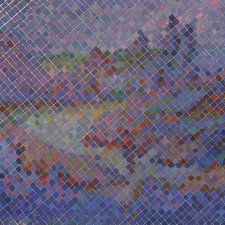Alfred Duca
1920 - 1997
Alfred M. Duca, a native of Milton, Mass., and longtime resident of Annisquam, studied at Pratt Institute in New York from 1938 to 1941, and at the Boston Museum School in the early 1940s. Over the course of his long career, Duca earned a reputation as a painter, sculptor and inventor.
He is credited with developing several new technical processes used in modern painting and sculpture, including the Polymer Tempera process, the forerunner to today’s acrylic paint, in 1944.
In the 1960s and 1970s, Duca was commissioned to produce several major sculptures in Boston. For the next 15 years, Duca worked with young people across the country on drug prevention, launching national programs, for which the Massachusetts governor presented him with a Lifetime Achievement Award. In 1993, the mayor of Boston issued a proclamation honoring Alfred Duca’s achievements and declared May 12 as “Alfred Duca Day.”
On Cape Ann, Duca is best known for his sculpture of Fitz Henry Lane which sits just outside Lane’s house on Duncan’s Point. Duca began the project in the mid 1990s, and in 1996 he created an edition of 25 miniature bronze casts of the final design, one of which is now in the collection of the Cape Ann Museum.
Duca died the following year, leaving the larger-than-life clay sculpture in his studio uncast. In the months that followed, interested community members raised funds to have the clay cast in bronze and installed outside the Lane house. The installation took place in August of 1998, with over 300 in attendance.

